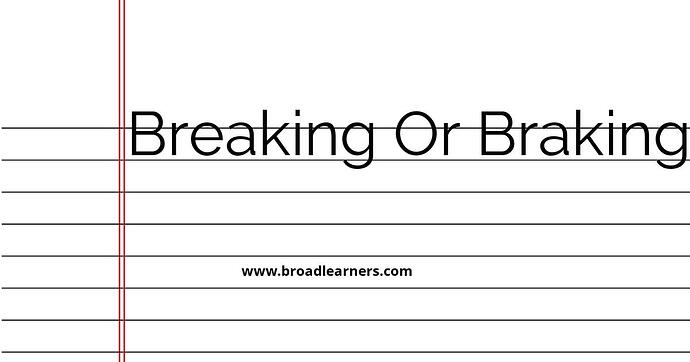'Breaking', 'braking', and 'breaking' are commonly confused words in English grammar. Understanding the difference between 'breaking', 'braking', and 'breaking' is important to use them correctly in written and spoken English.
'Breaking' is a verb that means to separate into parts, typically as a result of a force or impact. It is commonly used to describe the action of causing something to break or shatter.
'Braking' is a verb that means to slow down or stop a vehicle or machine using brakes. It refers to the action of applying brakes to reduce speed or bring something to a halt.
'Breaking' is a verb that means to interrupt or disrupt something, often a pattern or a cycle. It is used to describe the action of stopping or interfering with an ongoing activity or process.
Let's take a closer look at the meanings and usage of 'breaking', 'braking', and 'breaking'.
| 'Breaking' | 'Braking' | 'Breaking' |
|---|---|---|
| The word 'breaking' is used to describe the action of causing something to break or shatter. | The word 'braking' is used to describe the action of slowing down or stopping a vehicle or machine using brakes. | The word 'breaking' is used to describe the action of interrupting or disrupting an ongoing activity or process. |
|
|
|
To remember the difference between 'breaking', 'braking', and 'breaking', it can be helpful to associate 'breaking' with the action of causing something to break or shatter, 'braking' with the action of slowing down or stopping a vehicle or machine using brakes, and 'breaking' with the action of interrupting or disrupting an ongoing activity or process.
Here are some examples of correct usage:
- I heard a loud breaking sound coming from the kitchen.
- She is skilled at braking smoothly and safely.
- The sudden breaking of the news shocked everyone.
Remembering the correct usage of 'breaking', 'braking', and 'breaking' will improve your grammar and communication skills.
